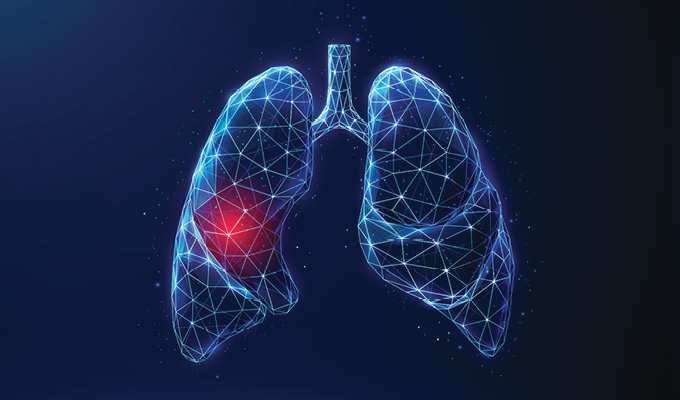Professor Dror Mevorach is the director of the Rheumatology Research Center of Hadassah Medical Organization and a senior lecturer at the Hadassah-Hebrew University School of Medicine. He is currently the head of one of the Hadassah Ein Kerem COVID wards.
Prof. Mevorach is also the founder, chief scientific and medical officer of Enlivex Therapeutics Ltd.
A member of several international medical and scientific societies, Prof. Mevorach has been investigating the role of apoptosis — the death of cells which occurs as a normal and controlled part of an organism's growth or development — for the past 18 years. He is a world leader in apoptosis research. Prof. Mevorach has published more than more than 112 scientific papers and is a frequent lecturer at international conferences. He earned his MD cum laude from The Technion—Israel Institute of Technology in Haifa, Israel, and was a fellow at the Hospital for Special Surgery and Cornell Medical School, NY.
Earlier this year, Israel was dubbed the vaccination nation for its quick rollout of the lifesaving COVID-19 vaccine. So much so that the Wall Street Journal noted "it was a feat propelled by an ample supply of doses and an uncommon healthcare system that combines competition with tax-funded universal coverage". Now, as we enter the fall, the country is seeing a resurgence in the disease brought on by the contagious Delta variant. Led by Prof. Dror Mevorach, Hadassah Hospital has re-opened its COVID ward. "Corona taught us to be modest," he says in the season three premiere episode of our podcast.
But this time around, they are more prepared. That's thanks, in part, to a new drug developed at Prof. Mevorach's Hadassah lab. It’s called Allocetra™ and when it’s given to a severe COVID patient, it can prevent them from being put onto a ventilator — a critical turning point in the life of the virus. "This is really a moment that changes the future of a patient with COVID," Prof. Mevoarch points out. Indeed, in an initial study, the majority of patients who took Allocetra™ felt so much better within just a few days that they were able to walk right out of the hospital. "It was amazing," he said.
Hadassah is now teaming up with other hospitals — including one in Spain — on a larger new Phase IIb study of the drug. If successful, Allocetra™ could be on its way to getting approval both in Europe and the United States.
Perhaps what excites Prof. Mevorach the most is that Allocetra™ doesn’t target the actual virus, but rather its side effects — like organ failure and lung damage. Which means it doesn’t matter if the doctors are combatting Delta or even a future variant, the drug would still work. What’s more, Mevorach is already working on other applications for the drug — including to help cancer patients.
He credits his ability to develop this drug to the collaborative effort that's evident around every corner on the Hadassah Hospital campus. "There was a special spirit of coming together, of dedicating ourselves to the mission, of trying the best we can, of caring, volunteering many times, despite the high pressure," he said.
"You see sometimes in war, when there is a big problem, everybody comes together. Corona gave us this opportunity to work together, to appreciate being with people that can help each other, and help the public."
What else you'll hear in this episode:
- What lessons did Hadassah doctors learn from the pandemic?
- Will we keep having to get a COVID-19 booster shot?
- What is Prof. Mevorach working on next?
BONUS: Watch this episode video here.
Further learning:
- Is the second shot giving young men a dangerous heart condition?
- Feeling better 'in 2 hours': COVID drug for critically ill starts Phase 3 trials
Read a transcript of this episode.
“Hadassah On Call: New Frontiers in Medicine” is a production of Hadassah, The Women's Zionist Organization of America. Hadassah enhances the health of people around the world through medical education, care and research innovations at the Hadassah Medical Organization. For more information on the latest advances in medicine please head over to hadassah.org.
Subscribe to our podcast on iTunes, Google Play, or your favorite podcast app. If you haven't already, please leave us a review on the iTunes store. It only takes a minute and when you do it helps others discover "Hadassah on Call."
The show is hosted by Benyamin Cohen and edited by Skyler Inman and the team at the Hadassah offices in both New York and Israel.
This episode includes a promotion for:
Our recent sleep episode:
Many of us have trouble sleeping at night and if you don't sleep well, it could lead to all sorts of health issues. We recently interviewed Dr. Joel Reiter on a recent episode of the “Hadassah On Call” podcast. We talked about his latest research, plus the various aspects of our lives that contribute to poor sleep, like living through the stress of a pandemic. “Because you take something like insecurity – insecurity about your workplace, about your parents, about your health, and add to that, the quarantines, staying at home for entire days and nights, and not getting out of bed, and you get an increase in sleep problems,” he said. You can listen to that episode right now at hadassah.org/cantsleep.
Hadassah membership:
As one of our podcast listeners, you've been hearing all about how Hadassah is here, healing the world. Every day, innovations from Hadassah's hospitals save lives in Israel, the US, and around the world. Being a member of Hadassah means you're a part of it, and that's something to be proud of. Hadassah is here for you, here for each other, and here for the world. Learn more about the many advantages of membership at hadassah.org/hadassahishere. Membership starts as low as $36 a year. If you're already a member, think about making someone you love a part of our healing work. Membership makes a beautiful gift.



.svg)


